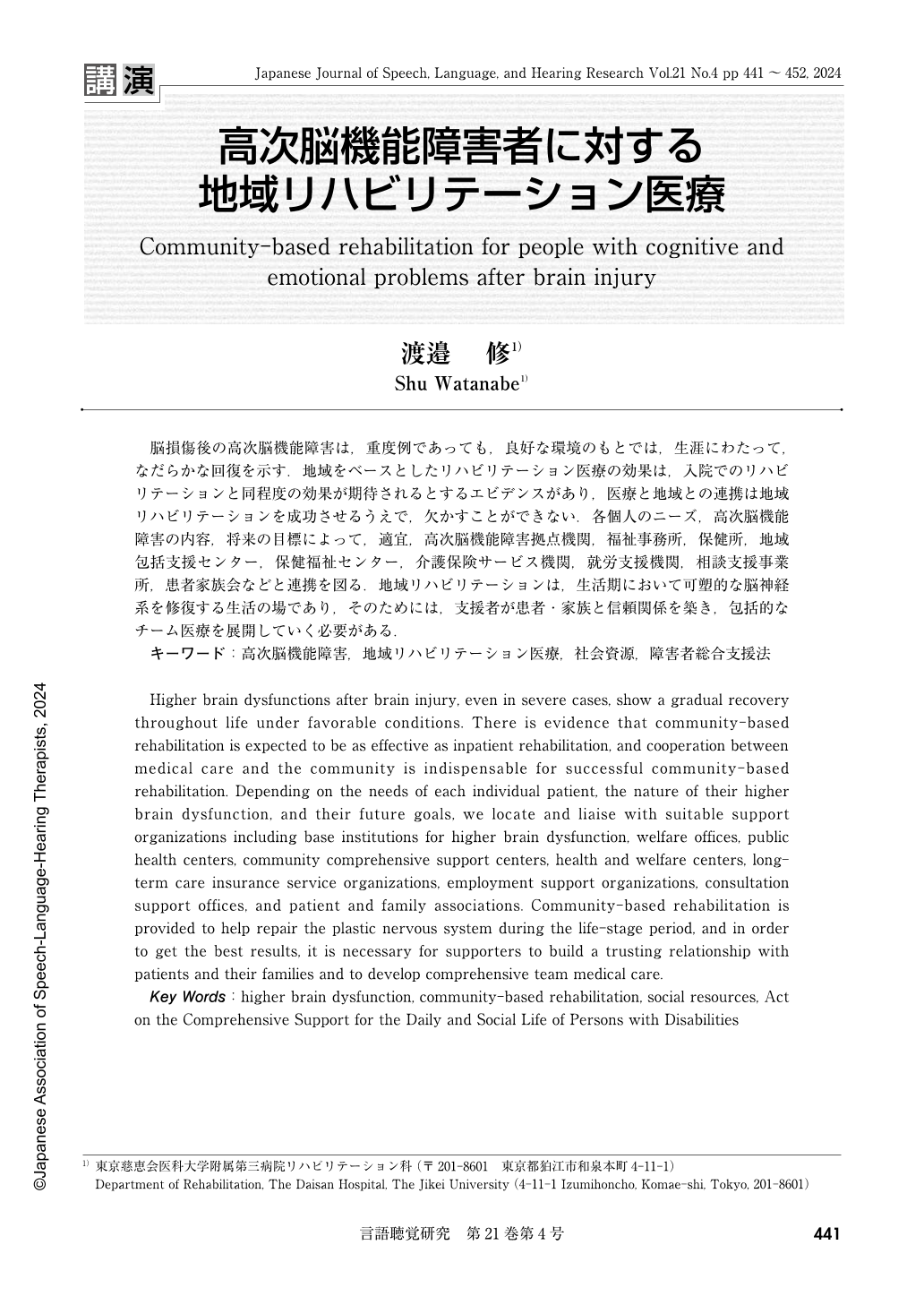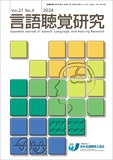Japanese
English
- 有料閲覧
- Abstract 文献概要
- 1ページ目 Look Inside
- 参考文献 Reference
脳損傷後の高次脳機能障害は,重度例であっても,良好な環境のもとでは,生涯にわたって,なだらかな回復を示す.地域をベースとしたリハビリテーション医療の効果は,入院でのリハビリテーションと同程度の効果が期待されるとするエビデンスがあり,医療と地域との連携は地域リハビリテーションを成功させるうえで,欠かすことができない.各個人のニーズ,高次脳機能障害の内容,将来の目標によって,適宜,高次脳機能障害拠点機関,福祉事務所,保健所,地域包括支援センター,保健福祉センター,介護保険サービス機関,就労支援機関,相談支援事業所,患者家族会などと連携を図る.地域リハビリテーションは,生活期において可塑的な脳神経系を修復する生活の場であり,そのためには,支援者が患者・家族と信頼関係を築き,包括的なチーム医療を展開していく必要がある.
Higher brain dysfunctions after brain injury, even in severe cases, show a gradual recovery throughout life under favorable conditions. There is evidence that community-based rehabilitation is expected to be as effective as inpatient rehabilitation, and cooperation between medical care and the community is indispensable for successful community-based rehabilitation. Depending on the needs of each individual patient, the nature of their higher brain dysfunction, and their future goals, we locate and liaise with suitable support organizations including base institutions for higher brain dysfunction, welfare offices, public health centers, community comprehensive support centers, health and welfare centers, long-term care insurance service organizations, employment support organizations, consultation support offices, and patient and family associations. Community-based rehabilitation is provided to help repair the plastic nervous system during the life-stage period, and in order to get the best results, it is necessary for supporters to build a trusting relationship with patients and their families and to develop comprehensive team medical care.

Copyright © 2024, Japanese Association of Speech-Language-Hearing Therapists. All rights reserved.


